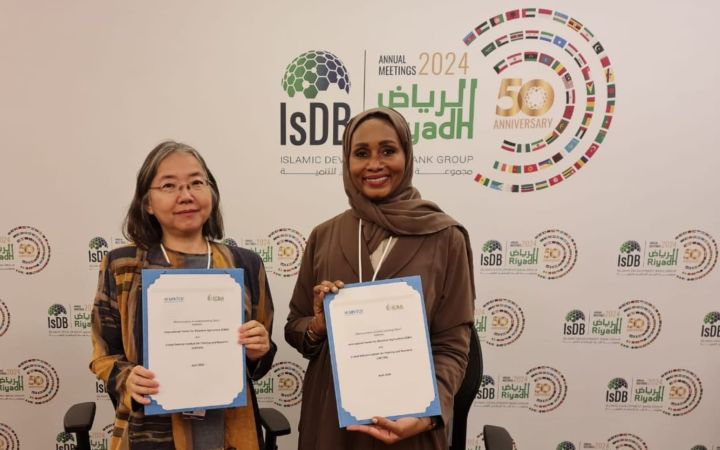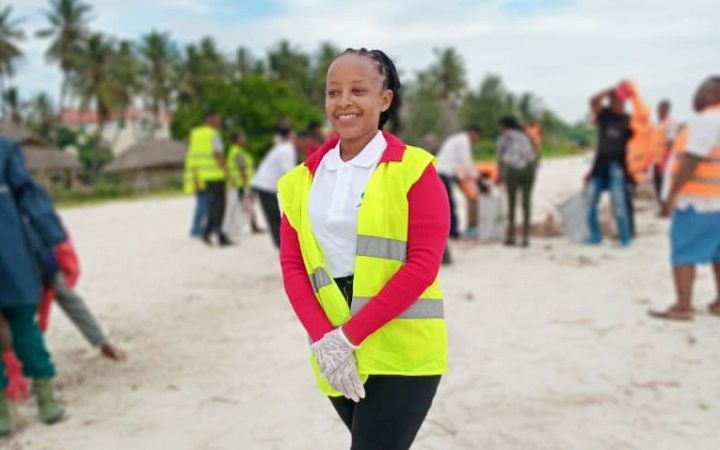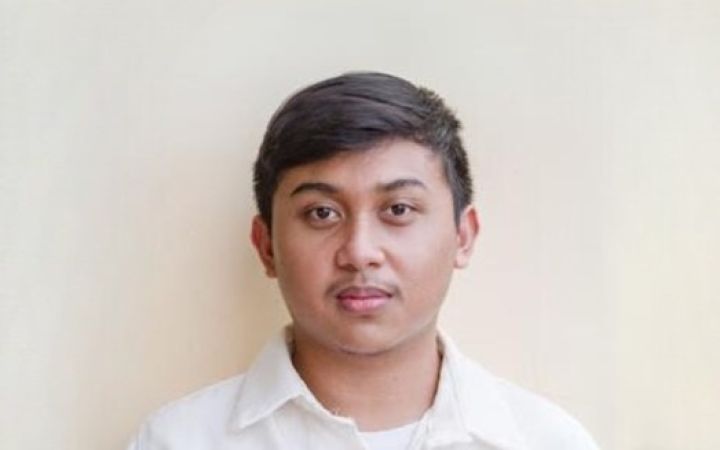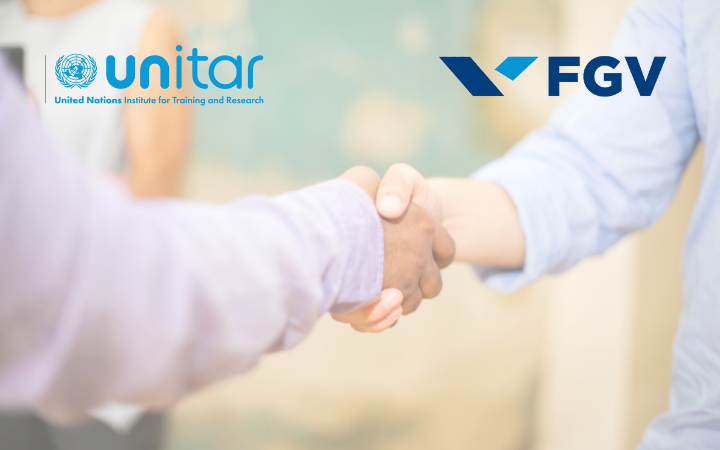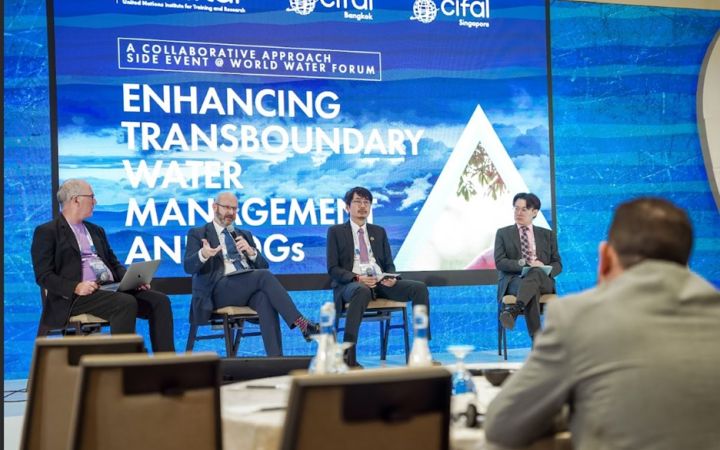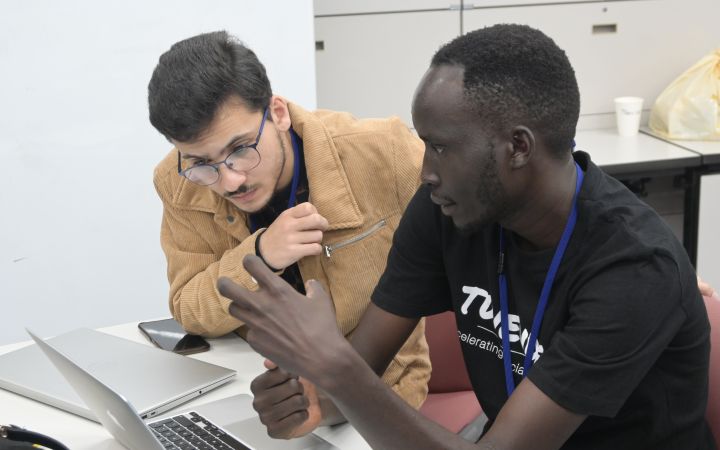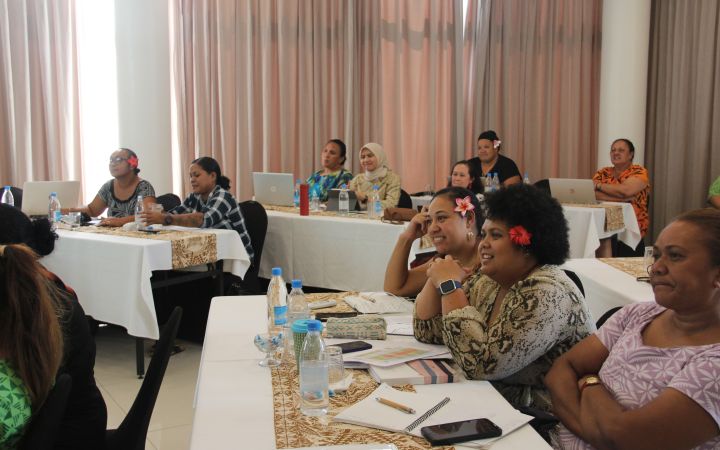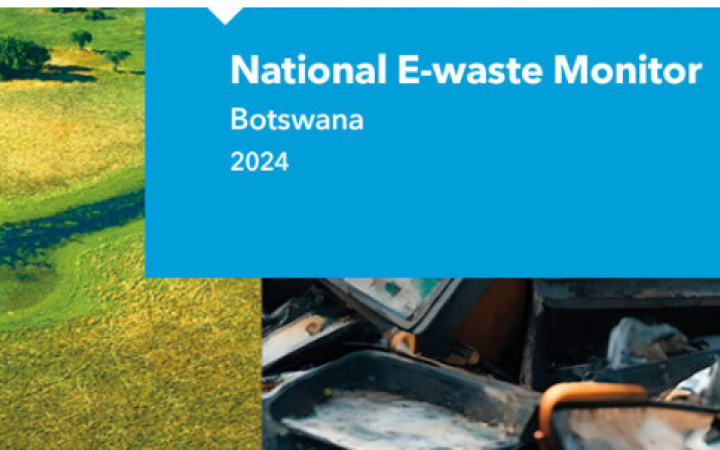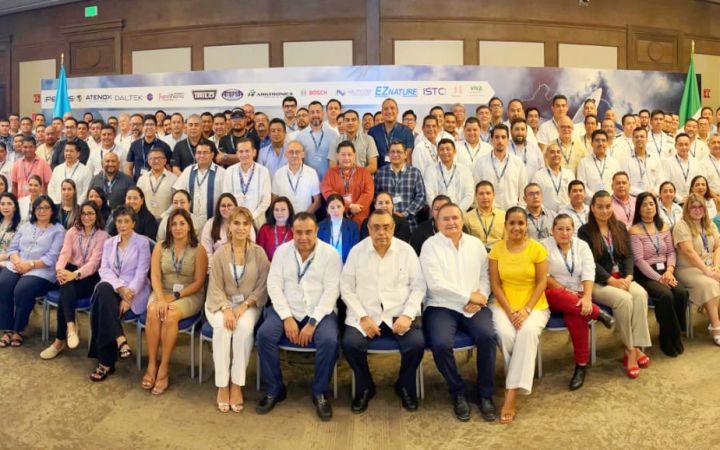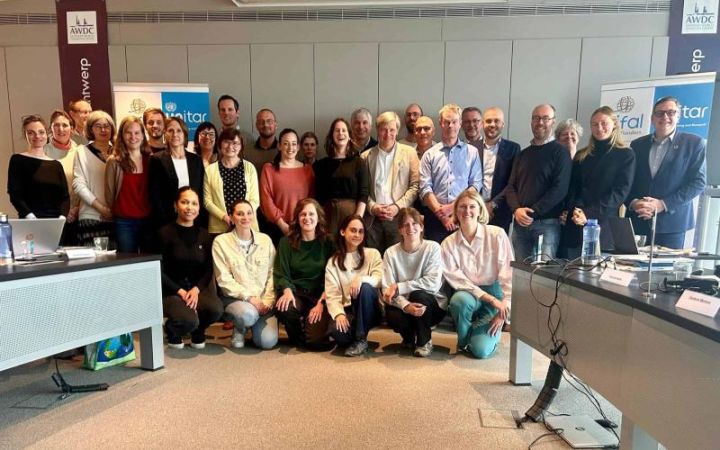Displaying 451 - 460 of 1670
23 May 2024, Hiroshima, Japan – On 27 April 2024, UNITAR signed a memorandum of understanding with the International Center for Biosaline Agriculture (ICBA) at a ceremony held at the 2024 Islamic Development Bank Group Annual Meetings in Riyadh. The memorandum was signed by Dr. Tarifa Alzaabi, Director General of ICBA, and Ms. Chisa Mikami, Head of UNITAR Hiroshima Office, Division for Prosperity.
23 May 2024, Hiroshima, Japan - Gloria Loishiye is one of over 2,000 alumni of the 2023 UNITAR Advancing Gender Equality and Women Empowerment Entrepreneurship and Financial Literacy Training Programme. She is a Tanzanian entrepreneur whose ventures span landscaping, gardening and environmental conservation.
22 May 2024, Hiroshima, Japan – Witnessing the devastating effects of disasters in his hometown of Zamboanga City, the Philippines, Guiane Paul Pena, a 17-year-old student at Regional Science High School, became determined to help youth respond effectively to such crises. With his country’s vulnerability to a wide range of disasters, including floods, cyclones, droughts, earthquakes, tsunamis and landslides, exacerbated by climate change, Guiane’s efforts to strengthen local resilience, emergency response and preparedness are both timely and crucial.
22 May 2024, Geneva, Switzerland – On 6 May 2024, UNITAR and Fundação Getulio Vargas (FGV) signed a memorandum of understanding to jointly develop and implement training programmes and organize summits, webinars, workshops and training sessions, as well as align efforts for resource mobilization. The two expect to collaborate in thematic areas such as leadership and inclusion, social innovation and entrepreneurship, digital futures, finance and trade, anti-corruption and combating crime, and business and public administration.
21 May 2024, Bali, Indonesia – UNITAR’s Global Water Academy (UGWA) proudly hosted the side event entitled ‘Enhancing Transboundary Water Management and SDGs: A Collaborative Approach’ in collaboration with CIFAL Singapore (Nanyang Technological Institute), and CIFAL Bangkok (Asian Institute of Technology) at the World Water Forum (WWF) in Bali, Indonesia.
15 May 2024, Hiroshima, Japan – Kuena James Dak, a dedicated South Sudanese entrepreneur, is driven by a passion to uplift the agricultural sector and empower local farmers. His vision is to bridge the gap between technology and agriculture. James works through his agritech venture to empower small- and medium-scale farmers so they can boost their productivity and raise their incomes.
15 May 2024, Hiroshima, Japan – UNITAR is accepting applications to its training programme “Leaders for a Free and Open Indo-Pacific: Sea and Human Security”. The programme is open to motivated government officials and others from the private sector and civil society organizations from Asian and Pacific Island countries. Applicants must be keen to learn how to enhance climate, social, economic, food and maritime security in the region and apply what they learn to make a positive impact on their countries and communities. The programme is scheduled to start on 21 June 2024. The application deadline is 14 June 2024 (midnight, JST/UTC+9).
April 2024, Bonn, Germany - UNITAR's Sustainable Cycles (Scycle) Programme published the National E-waste Monitor for Namibia and Botswana. This reports outline the current status of e-waste management in those countries and highlight significant challenges facing the countries in this regard.
2 May 2024, Mérida, Mexico – The International Training Centre for Authorities and Leaders in Merida (CIFAL Merida) successfully concluded its XIX international seminar on hurricane preparedness, bringing together decision-makers from airports in Mexico, Latin America and the Caribbean. A key objective of the seminar was to analyze and review emergency plans before the hurricane season to ensure that airports remain operational if impacted by a disaster.
2 May 2024, Antwerp, Belgium – The International Training Centre for Authorities and Leaders in Belgium (CIFAL Flanders) launched the ESG Frontrunners initiative, supported by the Department of Chancellery and Foreign Affairs of the Flemish Government, to offer a structured programme to help organizations navigate complex European regulations like the EU Taxonomy, Corporate Sustainability Reporting Directive (CSRD), and Corporate Sustainability Due Diligence (CSDD).


